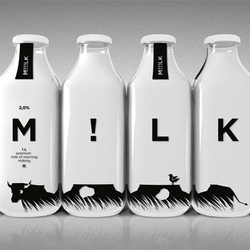Reshetnikov said that the West did not understand the harm from sanctions for himself
The scale of sanctions against Russia, which continue to be introduced, is not fully understood even by those who initiate them, said Economic Development Minister Maxim Reshetnikov.
“It seems to me that the scale of these sanctions is not fully understood by those who introduce them. How tightly integrated we are, how much it hits their economies. From my point of view, this is the main surprise for them,” he said in an interview with RBC TV at the St. Petersburg International Economic Forum (SPIEF). In early June, the European Union approved the sixth package of sanctions against Russia.
video
According to Reshetnikov, the consequences of restrictive measures accelerated inflationary processes and slowed down economic growth, primarily in Europe and the United States . “They are constantly lowering the pace of their development (in predictive estimates. -) in connection with the realization of what is happening. Yes, inflation is growing, the growth rate is falling, so this is all very unpleasant for them,” the minister said. “Moreover, these processes have become irreversible. Inflation will continue to grow there. The processes that have been launched there are the rise in energy prices, then inevitably the rise in prices for fertilizers, then inevitably the rise in food prices, and so on.”
"If we build a pipe, we have a pipe." What was discussed at the Sberbank breakfast Finance
In June, world food prices in annual terms exceeded last year's level by an average of 24.8%, according to the latest review "On the current price situation" of the Ministry of Economic Development.
The European Investment Bank (EIB) warned that the consequences of the conflict in Ukraine, associated with disruptions in trade and price increases, could lead to increased poverty in a number of EU countries and cost the eurozone 1.2% of GDP, warned at the European Investment Bank (EIB), RBC wrote. According to the bank's analysts, the poorest segments of the population will suffer the most from the acceleration of inflation, and the main blow will fall on low-income citizens of Central and South-Eastern Europe (Slovakia, Lithuania, Latvia, Bulgaria).
Look for trends and "dig deep". Super Mario Investment Principles Articles Pro Emotional Hunger:Experts assessed the long-term effect of sanctions on the Russian economy Economics
In June, the World Bank downgraded its forecast for global economic growth in 2022 to 2.9% from 4.1%, which was expected in January. At the same time, the assessment of the growth of the US economy this year has been lowered to 2.5 from 3.7%. The eurozone economy will increase by 2.5% instead of 4.2. In the Global Economic Prospects report, WB experts noted that the Russian-Ukrainian conflict exacerbated the damage caused by the covid-19 pandemic and accelerated the slowdown in the global economy. They warned of the risk of stagflation, with potentially detrimental consequences for middle- and low-income countries.
The recession in the Russian economy due to Western sanctions was estimated by experts surveyed by the Central Bank in June at 7.5%, and the growth in consumer prices at the end of the year - at 17% (instead of 22%). Compared to April, forecasts are improving, earlier analysts expected a larger drop. The Ministry of Economic Development is also going to improve its previous forecast for a decline in the economy in 2022. In May, the agency predicted a decline of 7.8%. As for inflation, it will be lower than the previously forecasted 17.5% at the end of the year, Reshetnikov told RBC. “We understand that we will significantly reduce it, given the fact that our prices have not increased for the fourth week in a row. But if you look year by year, of course, it will be double-digit,” the minister said.



























































